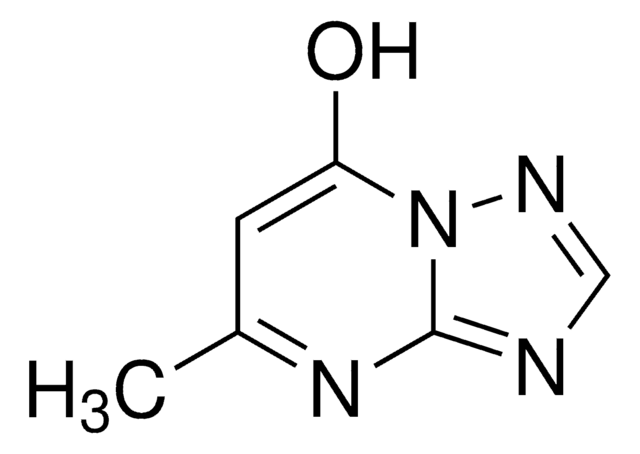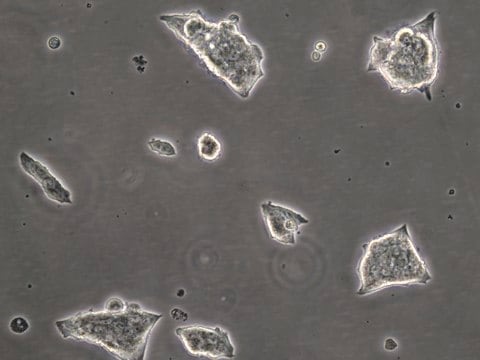T1820004
Trapidil impurity B
European Pharmacopoeia (EP) Reference Standard
Synonyme(s) :
3-AT
About This Item
Produits recommandés
Qualité
pharmaceutical primary standard
Famille d'API
trapidil
Fabricant/nom de marque
EDQM
Pf
150-153 °C (lit.)
Application(s)
pharmaceutical (small molecule)
Format
neat
Température de stockage
2-8°C
Chaîne SMILES
Nc1nc[nH]n1
InChI
1S/C2H4N4/c3-2-4-1-5-6-2/h1H,(H3,3,4,5,6)
Clé InChI
KLSJWNVTNUYHDU-UHFFFAOYSA-N
Vous recherchez des produits similaires ? Visite Guide de comparaison des produits
Description générale
Application
Conditionnement
Autres remarques
Mention d'avertissement
Warning
Mentions de danger
Conseils de prudence
Classification des risques
Aquatic Chronic 2 - Repr. 2 - STOT RE 2
Code de la classe de stockage
11 - Combustible Solids
Classe de danger pour l'eau (WGK)
WGK 2
Point d'éclair (°F)
Not applicable
Point d'éclair (°C)
Not applicable
Faites votre choix parmi les versions les plus récentes :
Certificats d'analyse (COA)
Désolés, nous n'avons pas de COA pour ce produit disponible en ligne pour le moment.
Si vous avez besoin d'assistance, veuillez contacter Service Clients
Déjà en possession de ce produit ?
Retrouvez la documentation relative aux produits que vous avez récemment achetés dans la Bibliothèque de documents.
Notre équipe de scientifiques dispose d'une expérience dans tous les secteurs de la recherche, notamment en sciences de la vie, science des matériaux, synthèse chimique, chromatographie, analyse et dans de nombreux autres domaines..
Contacter notre Service technique






![5-Amino-1H-[1,2,4]-triazole-3-carboxylic acid methyl ester 96%](/deepweb/assets/sigmaaldrich/product/structures/343/124/fed9a51c-601d-495f-8ded-bd63502da7ca/640/fed9a51c-601d-495f-8ded-bd63502da7ca.png)


